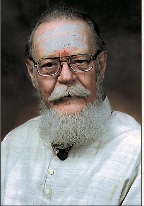By Devananda Tandavan
When children are in adults’ presence or environment, many of them are fidgety, cannot sit still, whine and are an overall distraction to the adults. For some this may be perfectly normal, because what is important in the adult world is usually not important in the child’s world. For many this may merely be a lack of education, discipline and proper guidance from the parents. For others, however, it may be a symptom of a condition known as Attention Deficit Hyperactivity Disorder. It is a neurological condition that usually sets in about age 6-7 (often as early as age 3) and may go into the teens, though rarely on into adulthood.
Those with ADHD have a very short attention span, act impulsively, appear hyperactive and sometimes out of control of their physical movements and emotions. They do not take directions well and sometimes appear to not have heard the parents at all, which may even suggest deafness.
This is a serious condition needing professional help. The help usually received from an allopathic doctor is a prescription for stimulant agents such as Ritalin, Dexedrone or Cylert. These are potent, with side effects such as appetite loss, stomach aches, nervousness and insomnia. There may also be some temporary growth retardation. Additionally, a class of drugs called beta-blockers are used for those patients who do not respond to stimulants.
I recommend a different approach. The child or young adult should see a competent homeopath who can give a remedy specific to the person with ADHD. An ayurvedic doctor should assure whether the patient’s diet and lifestyle is balanced and appropriate. Parents should not “bribe” their children with sweets, especially white sugar–although not causative in this condition, it often aggravates ADHD, much like pouring gasoline onto a fire. With so much energy released, the child is unable to cope and “goes off the deep end.” Misbehavior is not his fault, and he should not be punished for it, as some parents do. There may be a need for counseling of both parents and children to bring a true understanding of the multiple sources of ADHD.
I recommend a powerful antioxidant as a dietary supplement, along with Beta Carotene, Zinc Gluconate, Vitamin E, EsterC, selenium and Ginkgo Biloba. That antioxidant is pycnogenol–a patented, registered, maritime pine bark extract supplied in two forms: Pycnogenol (plain pine bark substance) and Pycnogenol Plus (pycnogenol supplemented with the above vitamins.)
The dosage is not difficult, but must be followed faithfully with both Pyc and Pyc+ twice daily, preferably with meals, in an amount according to the patient’s weight. There may be no relief of symptoms for a period of 10-39 days or until saturation has been achieved. After this, a maintenance dosage is used and slowly decreased as the symptoms come under control. The dose is from 2-8 Pyc+ pills and 1-8 regular pills twice a day for ten days or until saturation.
Maintain saturation for two months and then, perhaps after symptoms have subsided, slowly withdraw the pycnogenol. If symptoms are still present, continue treating for another couple of months. This eliminator of “free radicals” will gradually bring about more responsive and civilized behavior of the ADHD patient.
Dr. Tandavan, 77, retired nuclear physician and hospital staff president, lives in Chicago, where he specializes in alternative healing arts. Visit his home page at the Hinduism Today Website.
